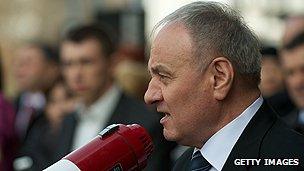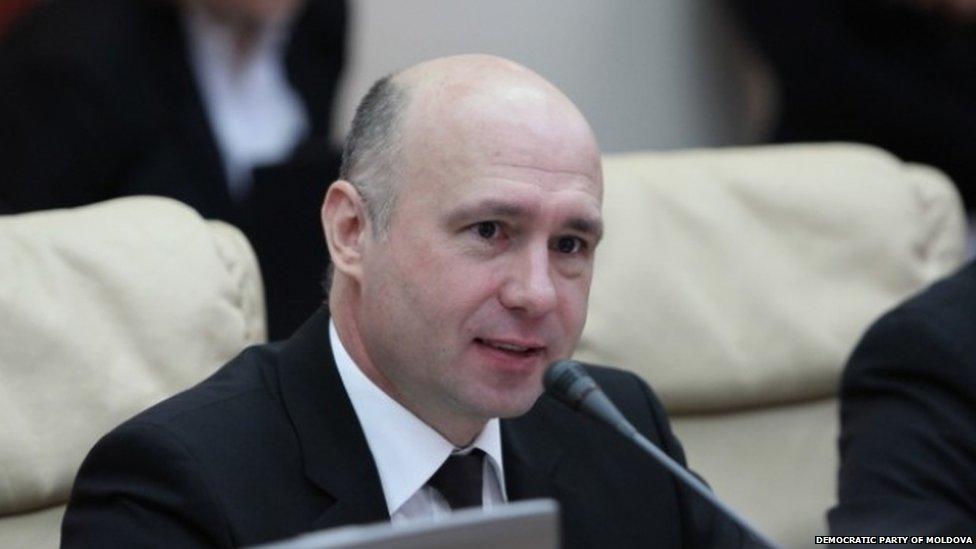Moldova profile - Leaders
- Published
President: Nicolae Timofti

Nicolae Timofti was a senior judge before he became president
Nicolae Timofti was elected president in a parliamentary vote in March 2012.
His appointment finally brought to an end the years of political stalemate that followed the resignation of Moldova's previous full-time president, the Communist Vladimir Voronin, in September 2009. The opposition Communists boycotted the vote to choose him.
Mr Timofti is an independent who had not previously been involved in politics. He had 36 years of experience as a judge, culminating in his appointment as chairman of the Supreme Magistrates Council.
In an address to parliament before his election, he strongly supported the aspirations of Prime Minister Vlad Filat's government for closer European Union integration.
Prime Minister: Pavel Filip

Pavel Filip took office amid protests in January 2016
In January 2016 Pavel Filip became Moldova's third prime minister in the course of a year, the previous two having been brought down by an unfolding scandal over the embezzlement of $1bn (12.5% of GDP) from the banking system.
Like his predecessors, Mr Filip is part of the three-party pro-European-Union coalition that has run Moldova since 2009.
Prime Minister Valeriu Strelet had promised to implement the 2014 association agreement with the European Union and achieve EU candidate-membership status by the next election in 2018, as well as to prosecute those responsible for the banking fraud.
But the consequent arrest of former prime minister Vlad Filat, the founder of the pro-European coalition, in September 2015 led to the government losing a vote of confidence amid street protests over the scandal and the ensuing credit crunch.
Mr Filip, the outgoing minister of communications, has a background in business, and pledges to continue the policies of the coalition.
Nonetheless, he faces further street protests from both pro-European and pro-Russian activists, who are angry at the continuing banking scandal in general and the new prime minister's ties to controversial businessman and fellow Democratic Party luminary Vlad Plahotniuc in particular.